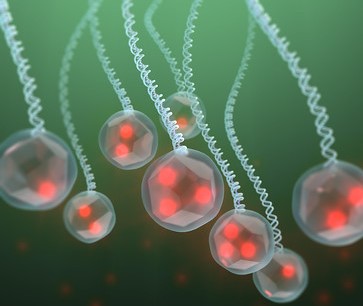
Chemical Biology

Revealing circuit mechanisms of contextual control of feeding behaviour
Revealing circuit mechanisms of contextual control of feeding behaviour
Humans and animals adjust their feeding behaviour according to many environmental factors, including the spatial context where food is found and consumed. Such contextual control of food seeking and eating is notably central to the ability to meet future needs and maximise chances of survival to changes in feeding routines, and may also impact abnormal feeding behaviour. However, the underpinning brain network mechanisms and pathways remain unclear. The Dupret laboratory (MRC Brain Network Dynamics Unit at the University of Oxford) investigates how the concerted spiking activity of neurons supports memory and the Krashes laboratory (NIH/NIDDK) investigates homeostatic and non-homeostatic feeding behaviour. An integrated project between the two labs, in collaboration with an NIH OxCam Scholar would be designed to enable the pursuit of a Ph.D. revealing circuit mechanisms of contextual control of feeding behaviour using in vivo large-scale network recordings in behaving rodents, combined with optogenetic and closed-loop manipulations.
Mapping protein-metabolite interactions on a proteome-wide scale
Mapping protein-metabolite interactions on a proteome-wide scale
In order to maintain homeostasis in response to environmental changes such as nutrient availability, eukaryotic cells have evolved intricate mechanisms to quickly increase or decrease the activity of fundamental processes such as gene expression, protein expression and degradation. Indeed, several metabolites act as cofactors for important cellular enzymes that regulate e.g. chromatin state and serve as templates for posttranslational modifications flagging proteins for proteolysis via the ubiquitin-proteasome system. Consequently, the identification of metabolites and complementary binding domains has broadened our understanding of human physiology and contributed to the development of new medicines to treat malignant and inflammatory disease. The aim of this project is to systematically map protein-metabolite interactions on a proteome-wide scale by combining the development of specific metabolite-inspired affinity reagents with unbiased approaches such as thermal profiling to dissect metabolite signalling in the context of protein degradation pathways in various cell types. Applicants will have the opportunity to take advantage of a unique combination of synthetic organic chemistry and cell biology techniques to identify new potential drug targets and develop first-in-class ligands for key regulators of protein homeostasis.
Chemical biology tools to study crosstalk between cell metabolism and protein degradation
Chemical biology tools to study crosstalk between cell metabolism and protein degradation
In order to maintain homeostasis in response to environmental changes such as nutrient availability, eukaryotic cells have evolved intricate mechanisms to quickly increase or decrease the activity of fundamental processes such as gene expression, protein expression and degradation. Indeed, several metabolites act as cofactors for important cellular enzymes that regulate e.g. chromatin state and serve as templates for posttranslational modifications flagging proteins for proteolysis via the ubiquitin-proteasome system. Consequently, the identification of metabolites and complementary binding domains has broadened our understanding of human physiology and contributed to the development of new medicines to treat malignant and inflammatory disease. The aim of this project is to systematically map protein-metabolite interactions on a proteome-wide scale by combining the development of specific metabolite-inspired affinity reagents with unbiased approaches such as thermal profiling to dissect metabolite signalling in the context of protein degradation pathways in various cell types. Applicants will have the opportunity to take advantage of a unique combination of synthetic organic chemistry and cell biology techniques to identify new potential drug targets and develop first-in-class ligands for key regulators of protein homeostasis.
Determine how changes in blood glucose can affect hunger and its role in diabetes
Determine how changes in blood glucose can affect hunger and its role in diabetes
This project aims to determine how changes in blood glucose can affect hunger and the drive to feed and examine how this can be altered in conditions such as diabetes.
Hypoglycaemia (low blood glucose) is a complication of the treatment of diabetes with insulin. It is feared by people with diabetes and is associated with increased risk of death. One of the important defences against a falling blood glucose is the generation of hunger- a potent defence which both warns and directs towards corrective action to help restore blood glucose. A subset of people with diabetes develop defective defensive responses to and warning symptoms (including hunger) of hypoglycaemia. This puts them at a markedly increased risk of suffering severe episodes of hypoglycaemia.
We want to determine how hypoglycaemic feeding is triggered and the mechanisms by which this may become altered in diabetes. To examine this in murine models, we will combine the skills of Evans’ laboratory (hypoglycaemia, insulin clamp methodology, operant conditioning feeding assessment) located within the Institute of Metabolic Science with broader interest and expertise in appetite and feeding with Krashes’ laboratory (neurocircuitry of feeding) to examine how and where glucoprivic feeding maps onto both conventional feeding pathways and also the neurocircuitry which triggers other counter-regulatory responses to hypoglycaemia. The student will examine how this adapts after exposure to antecedent hypoglycaemia. Finally, they will examine potential therapeutic targets to boost/ restore or prevent the loss of protective hunger in diabetes with recurrent hypoglycaemia.


